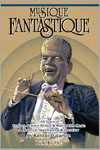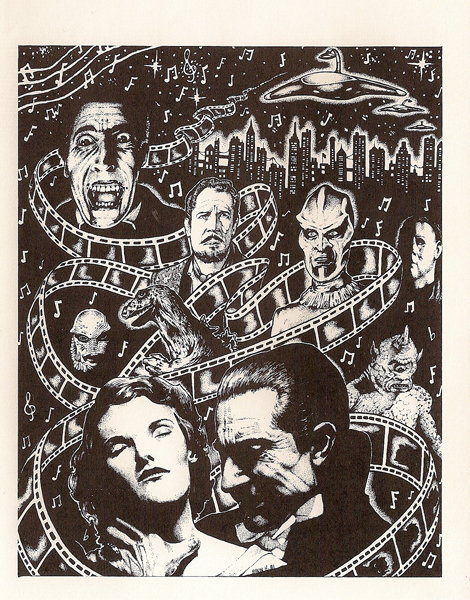May 19, 2022
Remembering Vangelis
Composer Vangelis has died at the age of 79, the Athens News Agency said today. Best known for his music to CHARIOTS OF FIRE, which won an Oscar for best score, and BLADE RUNNER, his representatives said he died in a hospital in France where he was being treated, according to The Guardian newspaper.

The BBC.com has reported that Lord Puttnam, producer of CHARIOTS OF FIRE, paid tribute to Vangelis, who he said had created “a new musical landscape.” US composer Austin Wintory wrote on Twitter that Vangelis “changed an entire era of music,” and British musician Daniel Pemberton said it was hard to underestimate the colossal impact of Vangelis on modern film music. “It is also hard to understand how groundbreaking CHARIOTS OF FIRE was. A period British film with a phenomenal synth score,” he added. Among those paying tribute to Vangelis was Greek prime minister Kyriakos Mitsotakis, who hailed him as “a pioneer of electronic sound,” wrote The Guardian.
Otherwise known as Evangelos Papathanassiou, Vangelis was born in Greece in 1943. He absorbed the tones of Greek folk songs and Orthodox Christian choral music, but he had no formal musical training, which he later said had helped save his sense of creativity, noted the French website France 24 today. He was also and was a primary member of two notable European rock bands, The Formynx and Aphrodite’s Child, before venturing on his own into solo electronic music and occasional film scores in Europe. He first came into prominence in the United States when portions of his recorded music from the album “Heaven and Hell” were used on the Carl Sagan PBS TV series COSMOS (1980), and he gained widespread attention when his keyboard pallet provided the Oscar-winning music accompanying CHARIOTS OF FIRE (1981). Despite the fact that the score’s main melody is performed acoustically by a piano, the underlying, chugging rhythm and riffing was accomplished on a variety of synths, and its dramatic and popular success led to increased recognition of synths as a viable alternative in Hollywood film scores.
“There had been electronic-music scores prior to Vangelis’s rise to prominence, but the enormous commercial success of CHARIOTS OF FIRE and the artistic success of BLADE RUNNER and other scores helped to ensure a future for synth-based composition in film and TV. Before long, all-electronic scores were commonplace (MIAMI VICE in 1984, WITNESS in 1985, etc.) and composers embraced this new form of music-making,” wrote Jon Burlingame in today’s Variety.

As a founding member of Aphrodite’s Child, a Greek progressive rock band formed in 1967, Vangelis and his bandmates found success in Europe with hit singles like “Rain and Tears,” “End of the World,” “I Want to Live,” and “It’s Five O’Clock.” The band’s career ended shortly after release of their most influential album, 666 (1972), which has appeared on a number of lists of the top progressive or psychedelic albums of all time. Despite enjoying success in the European prog rock scene of the early 1970s, he was uncomfortable with the expectations on a commercial performing artist and largely retreated to the recording studio he created for himself in London, noted France 24. He earned Grammy nominations for Best New Age Album for his solo albums, 1996’s “Oceanic” and 2016’s “Rosetta.”
Vangelis also composed the subdued score for Costa Gavras’ Palme d’Or-winning political thriller MISSING, which was followed by Ridley Scott’s BLADE RUNNER. While Vangelis’ music was accepted by Scott, the director wound up significantly editing the score throughout the picture and adding in supplemental and source music (which consequently made it difficult to create a proper soundtrack album of the film’s actual score, and various albums and rerecorded treatments replicating the film’s music have since abounded). All the same, as it remains in the film, the musical score is extraordinarily effective. Equal in musical sound design to the film’s visual depictions of then-futuristic 2019 Los Angeles, the score by Vangelis sonically introduced the massive and gaudy cityscapes of Southern California’s future, but in its more reflective moments it also conveyed the inner heart and soul of replicants closer to humanity than much of the human population, and humans who discover they may – or may not – be replicants themselves.

“As he often did, Vangelis performed all of the instruments, including synthesizer, piano, drums and percussion, and his memorable theme not only enhanced the film but, as a soundtrack, reached no. 1 on the Billboard charts and was nominated for a Record of the Year Grammy,” wrote NBC news. “Increasingly reclusive, he gave few interviews, preferring music-making to publicity and promotion.” He declined to attend the Academy Awards, where he won in March 1982. “They put a lot of pressure on me to go to America for the Oscar,” he told a British journalist at the time, “but I don’t like to be pushed, and especially for that. I hate the idea of competition.”

Among his later scores are the Mel Gibson and Anthony Hopkins drama THE BOUNTY; and he worked with Ridley Scott again on the 1992 film 1492: CONQUEST OF PARADISE. During the 1990s he provided scores for Roman Polanski’s BITTER MOON and documentaries by Jacques Cousteau. His last film score was for EL GRECO, a 2007 Greek biopic of the Renaissance painter, reported The Guardian. He also composed for the Greek theater (“Elektra,” 1983, and “Medea,” 1992, both with Irene Papas), for ballets in London (“Modern Prometheus,” 1985, and “Beauty and the Beast,” 1986), noted Jon Burlingame. “The restless artist moved from solo albums to music for nature films and sporting events throughout the ’80s, ’90s and 2000s,” Burlingame said. “His choral symphony ‘Mythodea’ was adopted by NASA as the theme for its 2001 Mars Odyssey mission and he penned original music for the European Space Agency’s 2014 expedition to Comet 67P,” and he composed music for the funeral of physicist Stephen Hawking in 2018. His last studio album, 2021’s “Juno to Jupiter,” was inspired by NASA’s Juno space probe. His music continued to appear in a number of short films, documentaries, and podcasts up through this year.
– Randall D. Larson (via buysoundtrax.com)




